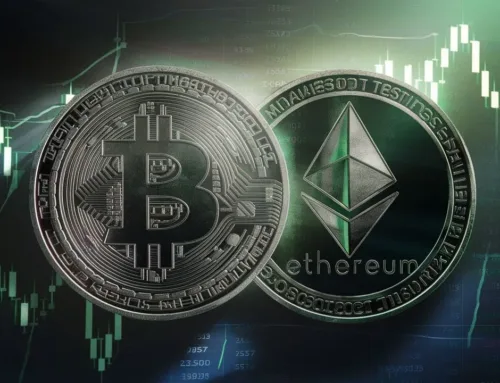Cannabis industry: intoxicating hemp persists despite Alaska court ruling
November 6, 2025
ANCHORAGE, Alaska (KTUU) – Seven months after a federal judge upheld Alaska’s ban on intoxicating hemp products, cannabis industry leaders say those products continue bypassing state cannabis regulations, flooding the market without having the manpower for full enforcement.
Federal Magistrate Judge Kyle Reardon ruled in May that Alaska’s limits on intoxicating hemp products do not violate the U.S. Constitution, rejecting a challenge by the Alaska Industrial Hemp Association, the Alaska Beacon reported in May. The ruling came after Gov. Mike Dunleavy first banned intoxicating hemp in 2023.
Since the court ruling, cannabis industry leaders say the enforcement actions have not stopped the flow of intoxicating hemp products being sold in Alaska gas stations, convenience stores and head shops.
“Most people think of hemp they think of rope and you know hemp, things like products that are not associated with consumable products that people ingest to say get intoxicated,” Trevor Haynes of GOOD Cannabis said. “But, in fact, hemp and marijuana are the same plants it’s just an arbitrary split with how much THC is in the plant.”
The legal battle began when Congress legalized hemp in 2018 through the Farm Bill, creating what cannabis industry leaders call a regulatory loophole. The law defines hemp as cannabis plants containing less than 0.3% THC — the psychoactive chemical in marijuana. However, they say, hemp processors found ways to extract and concentrate THC, creating intoxicating gummies, chocolates and drinks that could be manufactured out of state and shipped to Alaska.
At the federal level, marijuana remains a controlled substance classified as a Schedule 1 drug, although Alaska has legal sales that are heavily regulated and taxed.
The rules the cannabis industry follows forbid marijuana from moving across state lines and require strict regulation and taxation. By contrast, the state maintains intoxicating hemp products could bypass Alaska’s cannabis regulations entirely.
“At the end of the day we have all these regulations that we have to follow, we have all these taxes that we have to pay. We can’t compete,” Haynes said. “They can also produce products that are more intoxicating than us.”
The rules the cannabis industry follows forbid marijuana from moving across state lines and require strict regulation and taxation. By contrast, the state maintains intoxicating hemp products could bypass Alaska’s cannabis regulations entirely.
In Anchorage alone, municipal data shows retail cannabis sales taxes paid for 2024 were $5,424,144, down from $5,640,261 from the year before. Cannabis businesses partly attribute that decline to hemp competition.
“They’re operating in this gray market where they’re producing THC, which is really the only defining characteristic of marijuana, is that it has more THC than hemp does,” Haynes said. “So, they’re producing high levels of THC using CBD and still calling it hemp, because they’re doing this, they’re operating outside of our state’s legal framework.”
The Alaska Division of Agriculture enacted regulations in 2023 to limit intoxicating hemp products, leading to the constitutional challenge by the Alaska Industrial Hemp Association, the Beacon reported. The hemp industry argued the state regulations violated federal supremacy and commerce clauses.
Assistant Attorney General Kevin Higgins, who represented the state in the case, said the Division of Agriculture was motivated by public safety concerns when it took action to regulate the emerging industry.
The enforcement challenge reflects a broader national issue. Almost 40 attorneys general wrote a letter to Congress urging it to prevent the sale of intoxicating hemp products.
“For too long, bad actors have used the loophole in the 2018 Farm Bill to profit from super-potent, hemp-derived THC products by placing them in gas stations, convenience stores, and online marketplaces,” Pennsylvania Attorney General Michelle Henry wrote. “This unregulated market allows children to buy these extremely potent products, oftentimes without any knowledge that the products are intoxicating, addictive, and not safe.”
Alaska is not part of the effort.
The letter notes that since the 2018 Farm Bill, “hemp-derived THC products have flooded the public facing market due to a misinterpretation of the bill’s language. These synthetic cannabinoids, including Delta-8, Delta-10, THC-O, and others, are being sold in gas stations, convenience stores, and online retailers across the country.”
President Donald Trump has praised aspects of the hemp industry. In October, Trump posted a video on Truth Social endorsing Medicare coverage of CBD — the legal cannabidiol substance from the cannabis plant. The video was produced by the Commonwealth Project, a group promoting cannabis use for senior healthcare that also praised Trump for his 2018 farm bill that legalized industrial hemp.
Nationwide, the market for hemp-derived intoxicating beverages is estimated to be worth $239 million in 2023, according to Euromonitor International. Cannabis is becoming more popular than ever — daily or near-daily marijuana use surpassed daily drinking in the U.S. in 2024, based on analysis of 40 years of data from Carnegie Mellon University.
The annual value of U.S. cannabis production grew 40% last year, according to the Department of Agriculture and cannabis-derived products are projected to reach a $160 billion global market by 2032, according to Grand View Research.
Despite Alaska’s court victory, cannabis industry leaders say the enforcement gap means intoxicating hemp products continue competing unfairly with licensed marijuana retailers who face strict regulations and taxation.
Copyright 2025 KTUU. All rights reserved.
Search
RECENT PRESS RELEASES
Related Post




